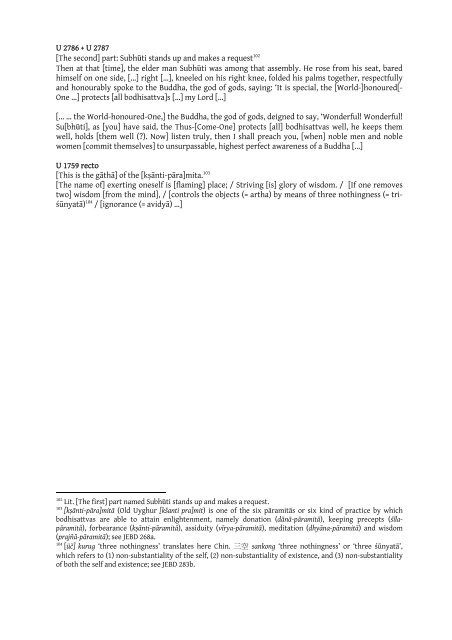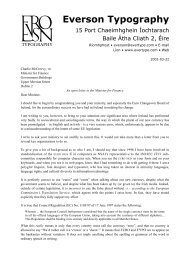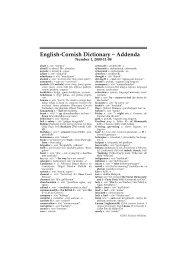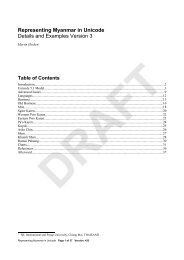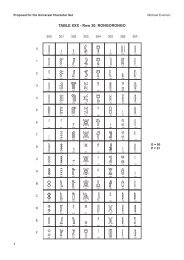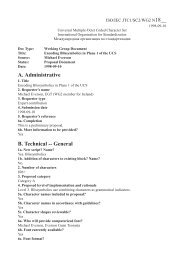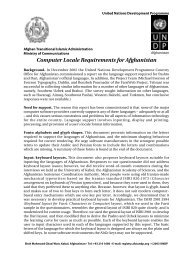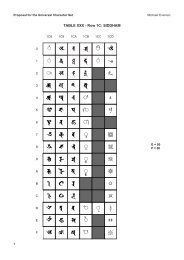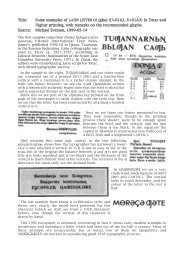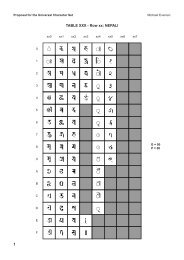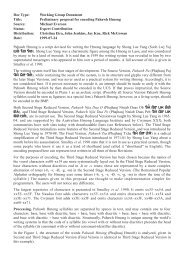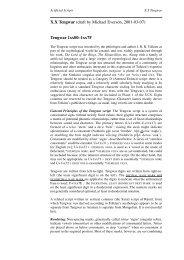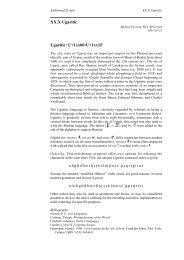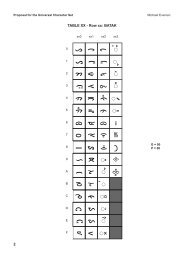The Vajracchedikā-sūtra with gāthās compiled by Master Fu - Evertype
The Vajracchedikā-sūtra with gāthās compiled by Master Fu - Evertype
The Vajracchedikā-sūtra with gāthās compiled by Master Fu - Evertype
You also want an ePaper? Increase the reach of your titles
YUMPU automatically turns print PDFs into web optimized ePapers that Google loves.
U 2786 + U 2787<br />
[<strong>The</strong> second] part: Subhūti stands up and makes a request 102<br />
<strong>The</strong>n at that [time], the elder man Subhūti was among that assembly. He rose from his seat, bared<br />
himself on one side, […] right […], kneeled on his right knee, folded his palms together, respectfully<br />
and honourably spoke to the Buddha, the god of gods, saying: ‘It is special, the [World-]honoured[-<br />
One …] protects [all bodhisattva]s […] my Lord […]<br />
[… … the World-honoured-One,] the Buddha, the god of gods, deigned to say, ‘Wonderful! Wonderful!<br />
Su[bhūti], as [you] have said, the Thus-[Come-One] protects [all] bodhisattvas well, he keeps them<br />
well, holds [them well (?). Now] listen truly, then I shall preach you, [when] noble men and noble<br />
women [commit themselves] to unsurpassable, highest perfect awareness of a Buddha […]<br />
U 1759 recto<br />
[This is the gāthā] of the [kṣānti-pāra]mita. 103<br />
[<strong>The</strong> name of] exerting oneself is [flaming] place; / Striving [is] glory of wisdom. / [If one removes<br />
two] wisdom [from the mind], / [controls the objects (= artha) <strong>by</strong> means of three nothingness (= triśūnyatā)<br />
104 / [ignorance (= avidyā) …]<br />
102 Lit. [<strong>The</strong> first] part named Subhūti stands up and makes a request.<br />
103 [kṣānti-pāra]mitā (Old Uyghur [kšanti pra]mit) is one of the six pāramitās or six kind of practice <strong>by</strong> which<br />
bodhisattvas are able to attain enlightenment, namely donation (dānā-pāramitā), keeping precepts (śīlapāramitā),<br />
forbearance (kṣānti-pāramitā), assiduity (vīrya-pāramitā), meditation (dhyāna-pāramitā) and wisdom<br />
(prajñā-pāramitā); see JEBD 268a.<br />
104 [üč] kurug ‘three nothingness’ translates here Chin. 三 空 sankong ‘three nothingness’ or ‘three śūnyatā’,<br />
which refers to (1) non-substantiality of the self, (2) non-substantiality of existence, and (3) non-substantiality<br />
of both the self and existence; see JEBD 283b.


